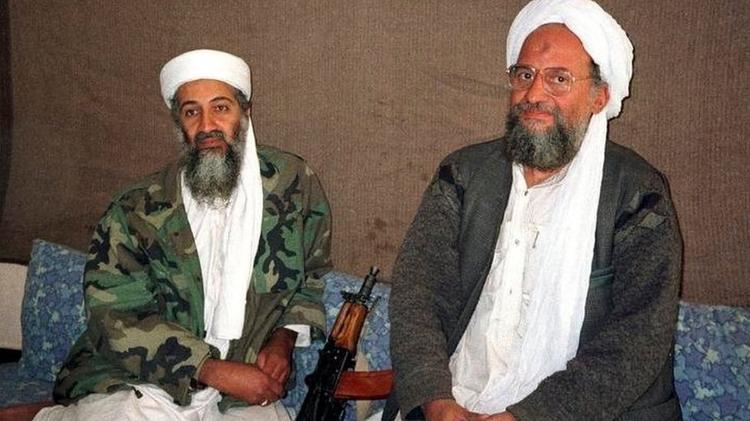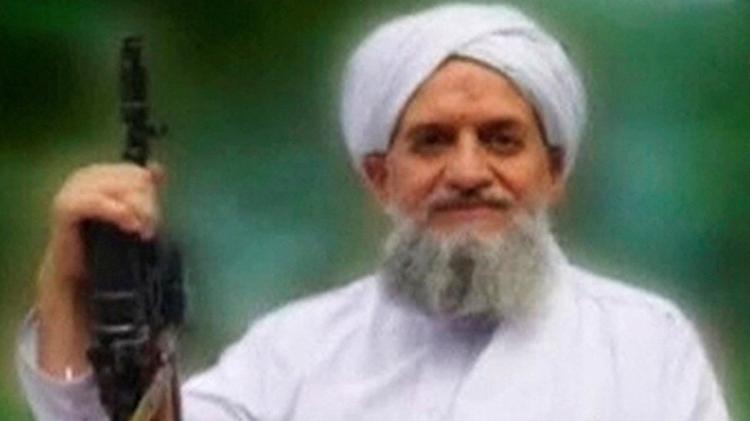Ayman al-Zawahiri, who lost his life in the attack carried out by the USA with an unmanned aerial vehicle in Afghanistan, was known as the most important ideologue of al-Qaeda.
An eye surgeon who helped found the militant group Egyptian Islamic Jihad assumed leadership of al-Qaeda after Osama bin Laden was killed by US forces in May 2011.
Zawahiri was seen as Bin Laden’s right-hand man. Some experts believe he was the “operational mastermind” behind the attacks on the United States on September 11, 2001.
Zawahiri was second only to bin Laden on the US government’s list of 22 “Most Wanted Terrorists” in 2001, with a $25 million bounty placed on his head.
In the years after the attacks, Zawahiri became the foremost spokesperson for al-Qaeda, appearing in 16 video and audio recordings in 2007 – four times as many as bin Laden as the group gathered Muslims around the world.
His death in an American attack in Kabul over the weekend is not the first American attempt to assassinate Zawahiri.
In January 2006, Pakistan was the target of a US missile attack near the Afghanistan border.
The attack killed four al-Qaeda members, but Zawahiri survived and appeared in a video two weeks later, warning then-President George W. Bush that neither he nor “all forces in the world” could kill him.
noble family
Born in Cairo, Egypt, on June 19, 1951, Zawahiri came from a respected middle-class family of doctors and academics.
His grandfather, Rabia al-Zawahiri, was the great imam of Al-Azhar, the center of Sunni Islamic scholarship in the Middle East. One of his uncles was the first general secretary of the Arab League.
Zawahiri became involved in political Islam at school and was arrested at the age of 15 for being a member of the Muslim Brotherhood, Egypt’s oldest and largest Islamic organization.
However, his political activities did not prevent him from studying medicine at Cairo University, where he graduated in 1974 and received a master’s degree in surgery four years later.
His father, Mohammed, who died in 1995, was a professor of pharmacology at the same college.
radical youth
Following the family tradition, Zawahiri opened a clinic in a suburb of Cairo. But he soon approached radical Islamist groups calling for the overthrow of the Egyptian government.
He joined the newly formed Egyptian Islamic Jihad in 1973.
In 1981, he was arrested along with hundreds of others after several members of the group, both officers and soldiers from the Egyptian army, killed President Anwar Sadat at a military parade in Cairo. Sadat had aroused the anger of Islamic activists by signing a peace treaty with Israel and arresting hundreds of critics.
During the trial of various suspects, Zawahiri emerged as the leader of the defendants. He was photographed saying to the court, “We are Muslims who believe in our religion. We are trying to establish an Islamic state and Islamic society.”
Despite being cleared of involvement in Sadat’s murder, Zawahiri was found guilty of illegally possessing a weapon and served three years in prison.
According to other Muslim prisoners, Zawahiri was tortured and beaten by the authorities during his imprisonment in Egypt, an experience that turned him into a fanatical and violent extremist.
After his release in 1985, Zawahiri went to Saudi Arabia.
He soon traveled to Peshawar, Pakistan, and then to Afghanistan, where he founded a faction of Egyptian Islamic Jihad while working as a doctor in the country during the Soviet occupation.
Zawahiri took over the leadership of Egyptian Islamic Jihad after it re-emerged in 1993 and was the key figure behind a series of attacks by the group on government ministers in Egypt, including Prime Minister Atif Sidki.
The group’s campaign to overthrow the government and establish an Islamic state in Egypt in the 1990s killed more than 1,200 people.
In 1997, the US State Department said he was the leader of the Pioneers of Conquest, a group of Islamic Jihad that was said to be behind the massacre of foreign tourists in Luxor that same year.
Two years later, he was sentenced to death in absentia by an Egyptian military court for his role in many of the group’s attacks.
targets in the west
It is believed that Zawahiri traveled to different countries in the 1990s to seek shelter and sources of finance.
He reportedly lived in Bulgaria, Denmark and Switzerland in the years following the Soviet withdrawal from Afghanistan and used a fake passport to travel to the Balkans, Austria, Yemen, Iraq, Iran and the Philippines.
In December 1996, he was reportedly detained in Russia for six months after being caught visa-free in Chechnya.
According to an account allegedly written by Zawahiri, Russian authorities were unable to translate the Arabic texts found on his computer and managed to keep his identity secret.
It is believed that in 1997, Zawahiri moved to the Afghan city of Jalalabad, where Osama Bin Laden’s headquarters is located.
A year later, the Egyptian Islamic Jihad joined five other radical Islamic militant groups, including bin Laden’s Al Qaeda, to form the World Islamic Jihad Front against the Jews.
The front’s initial proclamation contained a fatwa or religious edict authorizing the killing of American civilians. Six months later, two simultaneous attacks destroyed the US embassies in Kenya and Tanzania, killing 223 people.
Zawahiri’s satellite phone calls were used as proof that Bin Laden and al-Qaeda were behind the conspiracy.
Two weeks after the attacks, the US bombed the group’s training camps in Afghanistan. The next day, Zawahiri called a Pakistani journalist and said, “Tell the US that their bombings, threats and aggression do not frighten us. The war is just beginning.”
In the years after bin Laden’s death, US airstrikes killed several of al-Zawahiri’s aides and weakened his ability to coordinate globally.
And in recent years, Zawahiri has become an obscure and marginal figure and rarely speaks.
The US sees his death as a victory, especially after the chaotic withdrawal from Afghanistan last year. But as new groups and movements such as the Islamic State became more influential, Zawahiri had relatively little influence.
A new al-Qaeda leader will no doubt emerge, but will likely have less influence than his predecessor.
– This text was published at https://www.bbc.com/portuguese/internacional-62390197.
source: Noticias
[author_name]

